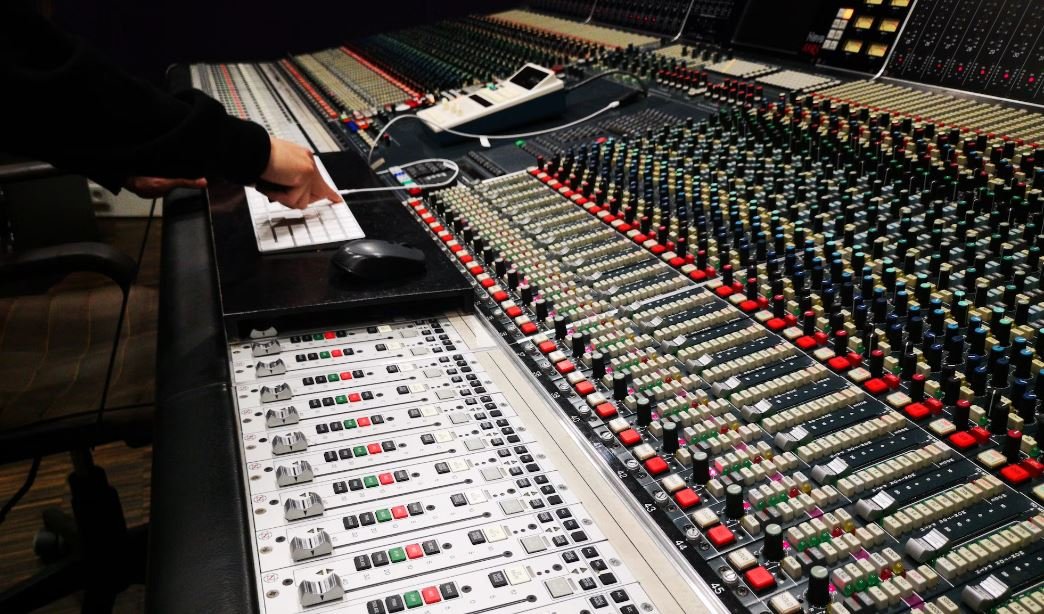What Is a Producer Responsible For?
A producer plays a crucial role in various industries, including film, music, theater, and television. Their responsibilities typically encompass managing projects, coordinating resources, overseeing budgets, and ensuring the successful completion of a production. The role of a producer requires a combination of creative, organizational, and business skills. Let’s explore the key responsibilities of a producer.
Key Takeaways:
- Producers are responsible for managing and overseeing a production from start to finish.
- They coordinate resources, such as talent, crew, and equipment, to ensure smooth operations.
- Producers handle budgeting and financial aspects of a production.
- They collaborate with directors, writers, and other key stakeholders to bring their vision to life.
- A successful producer possesses a mix of creative, organizational, and business skills.
1. Project Management
A producer is responsible for managing the entire project from inception to completion. They break down the production process into manageable tasks, create a timeline, and ensure everything stays on track. **The producer must carefully plan and prioritize each step to ensure the smooth progression of the project.**
Interesting fact: Producers often face unexpected challenges during production, requiring them to think quickly and make on-the-spot decisions to keep things running smoothly.
2. Resource Coordination
One of the primary responsibilities of a producer is coordinating resources such as talent, crew, locations, and equipment. **They must secure the necessary resources and ensure they are available at the right time and place.** Producers often work with casting directors, location managers, and production teams to handle these logistics.
Interesting fact: In some cases, producers might need to negotiate contracts and manage relationships with unions or guilds representing various industry professionals.
3. Budgeting and Finance
Producers play a critical role in budgeting and financial management for a production. They work closely with accountants and production managers to establish and monitor budgets. **Their goal is to maximize the efficient use of resources while staying within budgetary constraints.**
Interesting fact: The producer is responsible for tracking expenses and ensuring financial resources are allocated appropriately throughout the project.
4. Collaborating with Creative Teams
Collaboration is key for a producer’s success. They work closely with directors, writers, and other creative professionals to bring their vision to life. **The producer facilitates effective communication, encourages creative exploration, and ensures the project aligns with the intended artistic direction.** They may provide guidance or feedback to enhance the project’s quality and commercial viability.
Interesting fact: A skilled producer understands the importance of empowering and supporting the creative team to foster innovation and excellence.
5. Business Development
A producer often wears a business hat, seeking funding and distribution opportunities for the project. **They pitch the production to potential investors, distribute it through appropriate channels, and negotiate deals to maximize revenue.** Producers need strong networking and negotiation skills to secure financial backing and ensure the project reaches its target audience.
Interesting fact: Sometimes, a producer’s success is measured not only by the quality of the final product but also by its commercial success in the market.
Tables
| Industry | Production Examples |
|---|---|
| Film | Movies, documentaries, short films |
| Music | Albums, singles, music videos |
| Theater | Plays, musicals, live performances |
| Television | TV shows, series, miniseries |
| Characteristics | Skills Required |
|---|---|
| Creative | Vision, storytelling, artistic understanding |
| Organizational | Planning, time management, coordination |
| Business | Negotiation, finance, networking |
| Industry | Production Examples |
|---|---|
| Film | Movies, documentaries, short films |
| Music | Albums, singles, music videos |
| Theater | Plays, musicals, live performances |
| Television | TV shows, series, miniseries |
In Summary
A producer’s role is multi-faceted, involving project management, resource coordination, budgeting, collaboration with creative teams, and business development. **Their responsibilities encompass overseeing the entire production process and ensuring its successful completion**. With a combination of creative, organizational, and business skills, a producer brings together the necessary elements to turn ideas into reality.
Producers are the driving force behind the scenes, making the magic happen and bringing stories to life for audiences to enjoy.

Common Misconceptions
Paragraph 1: Definition of a Producer
One common misconception is that a producer is solely responsible for the financial aspects of a project. While it is true that producers are often involved in securing funding and managing budgets, their responsibilities extend far beyond that. Producers are also involved in creative decision-making, such as selecting scripts, hiring cast and crew, and overseeing the production process.
- Producers are responsible for overseeing every aspect of a project from start to finish.
- Producers play a crucial role in setting the overall vision and tone of the project.
- Producers are involved in securing distribution deals and promoting the finished product.
Paragraph 2: Creative Control
Another misconception is that the producer has complete creative control over a project. While producers do have significant input and influence, creative decisions are often made collaboratively with the director, writers, and other key team members. The producer’s role is more about facilitating the creative process and ensuring that the project stays on track.
- Producers work closely with directors and writers to develop the project’s creative vision.
- Producers often rely on the expertise of their team members to make informed creative decisions.
- Producers balance the needs and expectations of various stakeholders to achieve a cohesive final product.
Paragraph 3: Responsibilities Beyond Production
Some people believe that a producer’s responsibilities end once the production phase is complete. However, that is not the case. Producers are also involved in post-production, marketing, and distribution. They work to ensure the film, TV show, or other media product reaches its target audience and achieves success.
- Producers oversee the editing process and work with editors to shape the final product.
- Producers are responsible for developing marketing strategies and creating promotional materials.
- Producers negotiate distribution deals and coordinate the release of the finished project.
Paragraph 4: Limited to Entertainment Industry
A misconception is that producers are only found in the entertainment industry. While the term “producer” is commonly associated with film and television, producers exist in various other fields as well. For example, music producers oversee the recording and production process of music albums, and event producers organize and manage live events.
- Producers in the music industry are responsible for selecting songs, arranging recordings, and overseeing mixing and mastering.
- Event producers handle all aspects of event planning, including venue selection, logistics, and coordination of vendors.
- Producers in the gaming industry oversee the development and release of video games.
Paragraph 5: Only for Big Productions
Lastly, a common misconception is that producers are only involved in large-scale productions. While producers do play a significant role in big-budget projects, they are also essential in smaller-scale productions. Whether it’s an independent film, a short documentary, or a web series, producers are responsible for bringing the project to fruition and making critical decisions along the way.
- Producers of smaller-scale projects often work with limited resources and budgets.
- Producers must be highly adaptable and find creative solutions to overcome budget constraints.
- Producers of smaller projects may take on multiple roles to fulfill the needs of the production.

What Is a Producer Responsible For?
As a key figure in various creative industries such as film, music, and theater, producers play a crucial role in bringing artistic visions to life. They oversee and coordinate numerous aspects of a project, ensuring its successful execution. In this article, we will explore ten areas of responsibility that producers typically handle.
Managing Finances
Producers are responsible for managing the financial aspects of a project. This includes securing funding, creating budgets, and overseeing expenditures throughout the production process.
Casting
The casting process is another critical responsibility of a producer. They collaborate with directors to find the perfect actors for each role, ensuring that the cast fits the creative vision of the project.
Location Scouting
Producers are in charge of finding suitable locations for filming or recording, depending on the project. They search for distinctive and appropriate settings that align with the story’s requirements.
Contracts and Legal Matters
Dealing with contracts and legal matters is an integral part of a producer’s job. They negotiate and finalize agreements with cast and crew members, distributors, and other relevant parties involved in the project.
Production Scheduling
Producers create production schedules, ensuring that each aspect of the project is well-coordinated and completed within the designated time frame. This includes organizing rehearsals, filming or recording schedules, and post-production timelines.
Marketing and Promotions
Producers are responsible for creating marketing strategies and promotional campaigns to increase the visibility and success of the project. They collaborate with marketing teams to reach the target audience effectively.
Managing Creative Collaborations
Collaboration is crucial in the creative industry, and producers facilitate these relationships. They foster effective working environments and encourage collaboration between directors, actors, writers, and other creative professionals involved in the project.
Risk Assessment and Problem Solving
Producers must identify potential risks or challenges that may arise during the production and develop contingency plans to mitigate these issues. They have excellent problem-solving skills and can make quick decisions when facing unexpected obstacles.
Post-Production Supervision
After filming or recording, producers oversee the post-production process, ensuring the project stays on track. They coordinate with editors, sound engineers, and other post-production professionals to achieve the desired final product.
Quality Control
Producers are responsible for maintaining high standards of quality throughout the production process. They ensure that the artistic vision is upheld, and the final product aligns with the initial concept.
In conclusion, a producer’s responsibilities are multifaceted and require a diverse skill set to successfully navigate the complexities of bringing a creative project to fruition. From managing finances and scheduling to fostering collaboration and overseeing post-production, producers are integral to the success of any artistic endeavor.
What Is a Producer Responsible For?
FAQ
What does a producer do in the entertainment industry?
What are the primary responsibilities of a theatrical producer?
What are the responsibilities of a film producer?
What does a music producer do?
What skills are required to be an effective producer?
What is the difference between an executive producer and a producer?
Do producers have creative control over a project?
How do producers handle conflicts or challenges that arise during production?
What is the role of a producer in post-production?
What other professionals do producers collaborate with?




